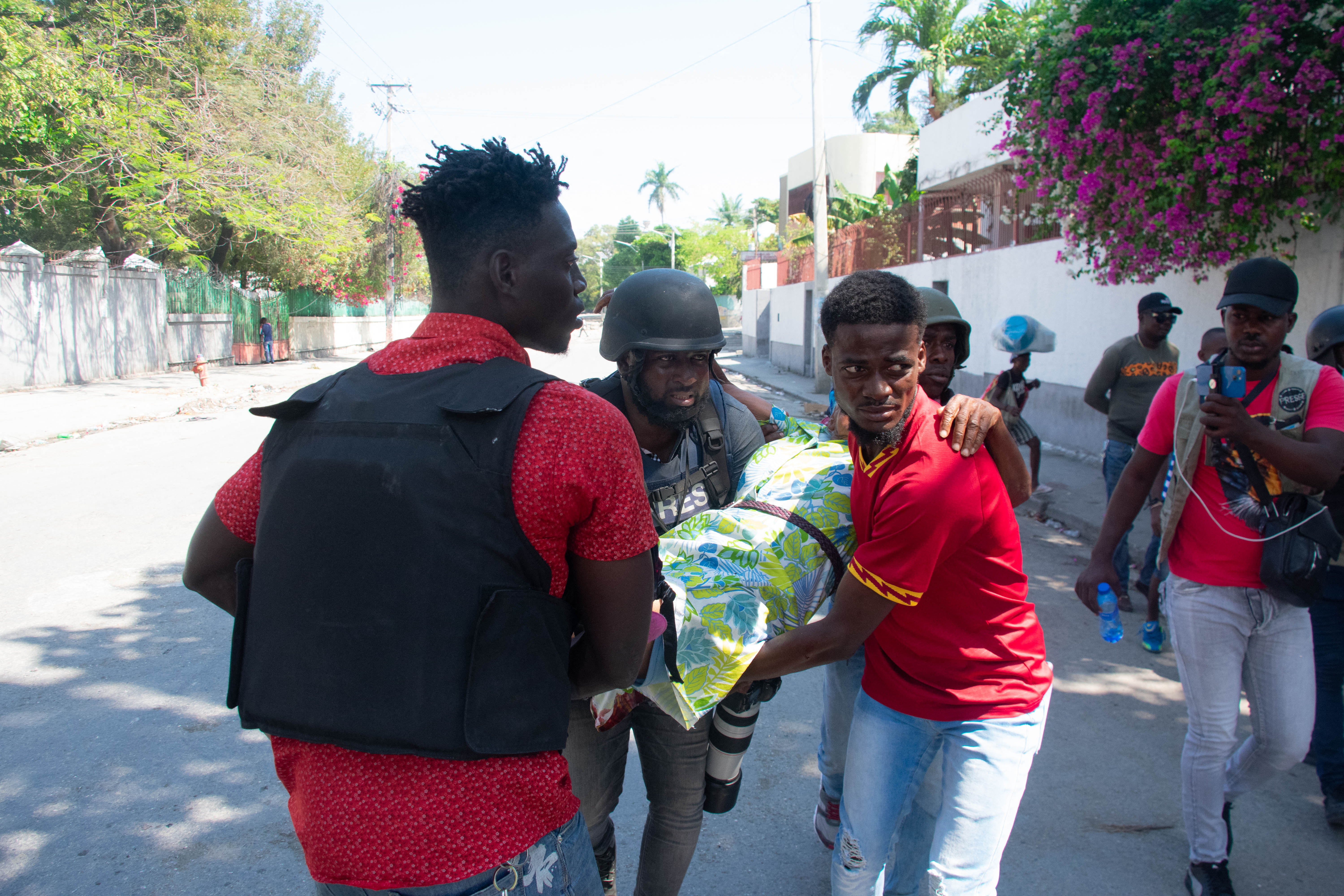
A regional bloc has summoned Caribbean, North American and European leaders and envoys to an emergency summit on the crisis in Haiti as attempts by gangs to wrest control from the crisis-racked country’s prime minister fuel deepening unrest.
The Caribbean Community and Common Market (CARICOM) called the meeting on Monday in Jamaica’s capital, Kingston, as more foreign diplomats were evacuated from Haiti, including European Union staff and all non-essential US personnel.
Guyanese President Mohamed Irfaan Ali, the current CARICOM chairperson, said talks seeking to bring “stability and normalcy” to Haiti were ongoing but Haitian stakeholders “are not where they need to be”.
“Time is not on their side in agreeing to the way forward,” Ali warned in a video on social media.
US Secretary of State Antony Blinken was also at the summit and promised an additional $100m for a United Nations-backed force to stabilise the country.
Blinken said the meeting was “critical” for Haiti and the region.
“Bringing CARICOM together is testament to Jamaica’s leadership: leadership in the hemisphere that we share, leadership at a critical moment, a critical moment for Haiti but also a critical moment for all of us,” he said.
Gang violence
Powerful gangs began launching attacks on key government targets across Haiti’s capital, Port-au-Prince, on February 29.
The violence came as Prime Minister Ariel Henry was out of the country, seeking to rally support for a Kenya-led foreign police intervention his government has said is needed to restore order.
He has since been effectively locked out of the country after gangs blocked airports there. He landed in Puerto Rico last week after being denied entry into the Dominican Republic, which shares the island of Hispaniola with Haiti.
The leader and spokesman of the alliance of gangs, Jimmy “Barbecue” Cherizier, last week warned that Haiti would be heading “straight for a civil war that will lead to genocide” if Henry did not resign.
Gangs currently control virtually all of Port-au-Prince as well as the main roads to and from the capital. They have in recent days burned police stations, closed the main international airports and raided the country’s two biggest prisons, releasing more than 4,000 inmates.
The latest violence has killed dozens of people with a further 15,000 displaced since the attacks began.
Calls for a political transition
Looting of the country’s main port has further added to the brewing humanitarian crisis, and the unrest has left the health system on the brink of collapse, according to the United Nations.
US Secretary of State Blinken also held bilateral talks with Jamaican Prime Minister Andrew Holness.
In a statement, spokesperson Matthew Miller said Blinken had stressed that security and stability in the region was a “shared priority” of the US and Jamaica.
Blinken “reiterated the United States’s support for a proposal developed in partnership with CARICOM and Haitian stakeholders to expedite a political transition through a creation of a broad based, independent presidential college,” the statement said.
Washington has called for Henry, who came to power after the 2021 assassination of Prime Minister Jovenel Moise, to support a political transition in coordination with the deployment of an international force to restore order.
Haitian parliamentary elections have been postponed since 2019.
The UN Security Council gave the green light in October for a multinational policing mission led by Kenya, but that deployment has been stalled by Kenyan courts.
US Assistant Secretary for Western Hemisphere Affairs Brian Nichols wrote in a post on X that the “international community must work together with Haitians towards a peaceful political transition.”
A state of emergency in the Ouest department, which includes Port-au-Prince, was imposed in early March and has been extended until April 3.
The National Human Right Defense Network, a Haiti-based government watchdog, has noted the measure has done little to stem the violence.
The international community must work together with Haitians towards a peaceful political transition. I'll be joining @SecBlinken in Jamaica at the @CARICOMorg High Level Meeting on Haiti in support of these efforts. -BAN https://t.co/ry0eaVAeoe
— Brian A. Nichols (@WHAAsstSecty) March 11, 2024
The group has accused Haitian National Police of colluding with gangs, who, it says, continue to benefit from the “protection of Haiti’s judicial and political authorities”.







